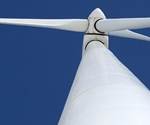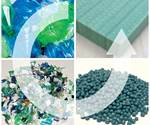Gurit to close its automotive production site in Hungary mid-2020
Gurit says it was unsuccessful locating a buyer for the company, and will work with customers and affected staff during the process of closing the plant.
Gurit (Zurich, Germany) has announced that it will close its Composite Components Business at its Hungary site in mid-2020. The company originally announced in December 2018 that it would divest this business, but has said that after its divestment efforts, no suitable buyer was found. The Hungary plant produces components for the automotive market.
Gurit says it will make every effort to assist the affected staff and will provide separation support at the point of the plant closing mid-2020. Gurit is in contact with the customers to re-assign the residual production orders to other suppliers.
Despite this, the company says that the operational performance of the site has significantly improved in recent months. Shut-down cost is estimated at a low single digit million amount affecting the years 2019 and 2020.
CW has also recently reported news related to Gurit:
- Earlier this month, Gurit announced it will expand its German aerospace prepreg facility and close its Switzerland facility, to come into effect in mid-2021.
- In August, Gurit announced two new wind market supply contracts for its core materials.
- Gurit announced in April that its Italian PET recycling branch will acquire PET recycling facilities from Valplastic S.r.l.
Related Content
-
JEC World 2024 highlights: Glass fiber recycling, biocomposites and more
CW technical editor Hannah Mason discusses trends seen at this year’s JEC World trade show, including sustainability-focused technologies and commitments, the Paris Olympics amongst other topics.
-
Bladder-assisted compression molding derivative produces complex, autoclave-quality automotive parts
HP Composites’ AirPower technology enables high-rate CFRP roof production with 50% energy savings for the Maserati MC20.
-
Trends fueling the composites recycling movement
Various recycling methods are being considered for composites, from novel dismantling and processing, to building capacity and demonstrating secondary use applications.
.jpg;width=70;height=70;mode=crop)


